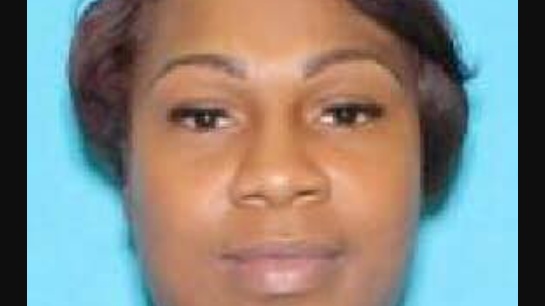A Black woman in North Carolina faces up to 19 months in prison because she voted in the 2016 election without realizing that she'd lost her right to vote.
According to The Guardian, Lanisha Bratcher took part in the election while she was on probation after being convicted of assault. In doing so, Bratcher reportedly broke a North Carolina law which requires convicted felons to complete their probation before they can vote.
The law dates back to a 19th-century policy that aimed to disenfranchise Black Americans, The Guardian reports. North Carolina's 1898 Democratic handbook mentions the need “to protect the white voters of the state against having their honest votes off-set by illegally and fraudulently registered negro votes.”
Bratcher said nobody told her that she couldn't vote.
“I had no intention to trick anybody or be malicious or any kind of way,” Bratcher told The Guardian. “If you expect us to know that we should know we should not do something, then we should not be on the list or even allowed to do it.”
Voting while serving a criminal sentence in North Carolina is considered a “strict liability” felony, meaning prosecutors can convict people like Bratcher without proving they intended to vote illegally.
According to The Guardian, 48 states have laws that ban convicted felons from voting. Last year, a Texas woman was sentenced to five years in prison for voting as a felon in 2016. Like Bratcher, Crystal Mason said nobody told her that she couldn't vote.
"I inflated returns," Mason said in 2018. "I was trying to get more money back for my clients. I admitted that. I owned up to that. I took accountability for that. I would never do that again. I was happy enough to come home and see my daughter graduate. My son is about to graduate. Why would I jeopardize that? Not to vote."
According to The Fayetteville Observer, North Carolina implemented the current policy after the Civil War as Black voters started to gain more political power. The 1901 law states that any person “convicted of any crime which excludes him from the right of suffrage . . . [who] shall vote at the election, without having been restored to the right of citizenship, shall be guilty of an infamous crime.”
Although the statute was slightly adjusted in 1931, replacing “infamous crime” with “felony," the policy still remains the same. The law especially impacts Black residents, which made up 53% of the prison population in North Carolina in 2016, The Observer reports.
In 1903, North Carolina's then-governor Charles Aycock talked about solving the "negro problem," seemingly by way of disenfranchisement.
"I am proud of my state because there we have solved the negro problem," he said. "We have taken him out of politics and have thereby secured good government under any party and laid foundations for the future development of both races. We have secured peace, and rendered prosperity a certainty."
Bratcher said her life has been impacted in many ways since she was charged with illegally voting, including the embarrassment she faced when the Hoke County Sheriff Office posted her mugshots on Facebook.
“I was at a better place in my life. I had a different mindset. I don’t have any barriers, I don’t have any borders, I don’t have any walls up. I’m free and now I can be able to meet my full potential,” she told The Guardian. “But then the walls came tumbling down.”

